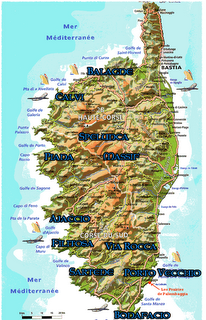
I needed a good paperback to read as I travelled back to Liverpool. It seemed strangely appropriate that I read a book about narcotics travelling back to my home city, given that Liverpool's recent history and cultural renaissance has been intertwined with its association as the UK's narcotic equivalent of the Square Mile. Characters like Curtis Warren as it's big swinging dicks as Liars Poker author Michael Lewis would have called them.
The premise of The Strength of the Wolf by Douglas Valentine is that the US and other foreign governments have had their fingers in the drug trafficking pie for hundreds of years.
by Douglas Valentine is that the US and other foreign governments have had their fingers in the drug trafficking pie for hundreds of years.
Indeed Great Britain fought two wars over the opium trade. However, this is thought to be history.
The US as the 20th century empire 'ruler' is alleged to have carried on the practice supporting Chinese nationalists running heroin through the golden triangle, right-wing military figures in South America, friendly factions in the Middle East to smuggle opium to the French Connection and allowing the mafia a degree of freedom in return for using their supply.
Valentine also describes how drugs were used as a way of controlling minorities and how politically motivated drugs laws fanned demand in the US rather than choking it off.
These allegations are made as Valentine tells the story of the FBN (the federal bureau of narcotics), its successes, it's failures and its politics. How officers trod the line between doing their job, whilst not upsetting the establishment players who most benefited from the drug trade that they combated.
The book covers the inner real politik that tore the FBN apart and the global narcotics market as it evolved from the early 20th century.
Valentine eventually decides to pursue so many leads from Jack Ruby's involvement with drugs, the CIA and narcotics business associates link with the Kennedy assassination (which sounds only slightly more credible than the Warren Commission finding that Oswald did it on his own with an Italian carbine), DeGaulle's link with Corsican criminals to fund French intelligence work and Mossad's alleged involvement with money launderers and Lebanese narco power-brokers.
At times these allegations and avenues come out like a stream of consciousness and the thread of the plot leaps around like an epileptic break dancer. Whilst Valentine has obviously done a very thorough and comprehensive job in researching the book, it seems that he had too much material to work with in too little time.
The book becomes hard to follow because of the huge amount of information and cross-linkages that it tries to convey and not exactly ideal reading material for travelling.
I stuck with the book, not because of the drugs and intelligence drama, but the more human tale of how the agents careers were created and trashed like failed drafts being thrown in the paper basket. The book on balance, deserves the plaudits that have been heaped upon it, but who will recognise the achievements of the reader who pushes through to the end?
The premise of The Strength of the Wolf
Indeed Great Britain fought two wars over the opium trade. However, this is thought to be history.
The US as the 20th century empire 'ruler' is alleged to have carried on the practice supporting Chinese nationalists running heroin through the golden triangle, right-wing military figures in South America, friendly factions in the Middle East to smuggle opium to the French Connection and allowing the mafia a degree of freedom in return for using their supply.
Valentine also describes how drugs were used as a way of controlling minorities and how politically motivated drugs laws fanned demand in the US rather than choking it off.
These allegations are made as Valentine tells the story of the FBN (the federal bureau of narcotics), its successes, it's failures and its politics. How officers trod the line between doing their job, whilst not upsetting the establishment players who most benefited from the drug trade that they combated.
The book covers the inner real politik that tore the FBN apart and the global narcotics market as it evolved from the early 20th century.
Valentine eventually decides to pursue so many leads from Jack Ruby's involvement with drugs, the CIA and narcotics business associates link with the Kennedy assassination (which sounds only slightly more credible than the Warren Commission finding that Oswald did it on his own with an Italian carbine), DeGaulle's link with Corsican criminals to fund French intelligence work and Mossad's alleged involvement with money launderers and Lebanese narco power-brokers.
At times these allegations and avenues come out like a stream of consciousness and the thread of the plot leaps around like an epileptic break dancer. Whilst Valentine has obviously done a very thorough and comprehensive job in researching the book, it seems that he had too much material to work with in too little time.
The book becomes hard to follow because of the huge amount of information and cross-linkages that it tries to convey and not exactly ideal reading material for travelling.
I stuck with the book, not because of the drugs and intelligence drama, but the more human tale of how the agents careers were created and trashed like failed drafts being thrown in the paper basket. The book on balance, deserves the plaudits that have been heaped upon it, but who will recognise the achievements of the reader who pushes through to the end?